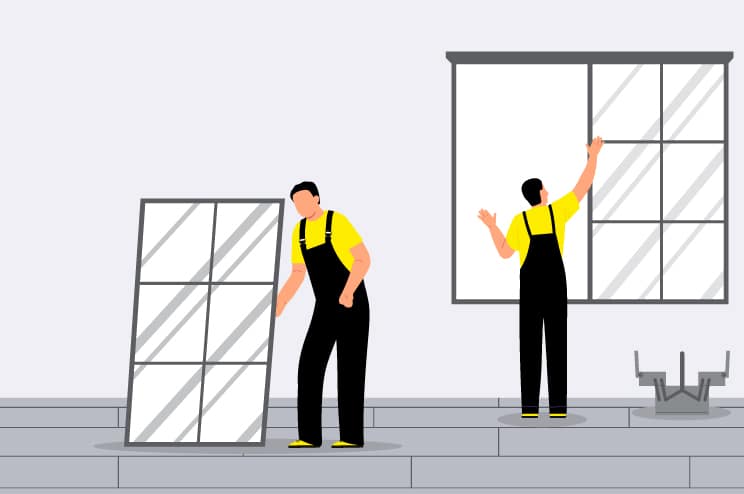Windows are more than just openings in the wall; they are vital to a home’s aesthetic appeal, energy efficiency, and your overall comfort. That’s why making sure they are in good condition and working properly is of the utmost importance. Don’t know what to look out for? No worries! That’s what this guide is all about. In this blog we’ve compiled some of the common telltale signs that it may be time for a window replacement in New Jersey.
The Importance of Timely Window Replacement
But first, why are functional windows such a big deal? Well, it may surprise you that old/outdated windows or those that have malfunctions can cause a number of unpleasant and costly problems, especially in a diverse climate like New Jersey’s. To name a few…
Increased Energy Bills: One of the most significant problems with old or malfunctioning windows is their poor insulation properties. Inefficient windows can lead to significant heat loss during winter and heat gain during summer, forcing heating and cooling systems to work overtime and driving up energy costs.
Condensation and Mold: Old windows can also allow moisture to enter or condense on the interior surfaces. This moisture can lead to mold growth, which poses health risks and can damage surrounding structures and finishes.
Signs It’s Time to Replace Your Windows
Okay, so what are the signs that you may need a window replacement? Well, apart from the fact that you’re reading this blog (which may be a sign itself) here are some common indicators:
1) Visible Damage
Visible damage to windows, such as cracks in the glass, warping of the frame, rotting wood, or chipping paint is usually a good reason to replace your windows entirely.
2) Difficulty Operating Windows
Struggling to open or close your windows? That’s no way for a window to behave. While this may or may not be an inconvenience to you personally, it is typically a sign of deeper issues.
3) Drafts
Drafts not only make your home uncomfortable but also lead to higher energy consumption as your heating or cooling system works overtime to compensate. This inefficiency is a clear sign that window seals or insulating gas between panes might have failed.
4) Noise Pollution
Increased noise penetration indicates a reduction in the soundproofing qualities of your windows. The nice thing about modern windows is that they come with features that significantly reduce noise from traffic, neighbors, and other external sources, contributing to a quieter and more peaceful home environment.
5) Condensation or Frost
Moisture between glass panes suggests that the window’s insulative vacuum or gas fill has been compromised. This reduces the window’s ability to insulate your home from external temperatures. And yes, that means it’s probably time for a replacement.
Choosing the Right Windows for Your New Jersey Home
Thinking about replacing your windows? It’s important to understand your options. Widows come in all sizes and styles to fit you and your home’s particular needs such as slider, casement, bay, and double-hung options.
The most common choice for NJ homeowners, however, is the reliable double-hung window. If you are looking for a good all around window with easy open/close access, you can’t go wrong with double-hung styles.
The Replacement Process
Replacing windows is a process that begins with a professional consultation followed by the installation, usually completed within a day or two, depending on the project’s scale. The key to a smooth replacement experience is choosing a reputable contractor with a track record of quality work and reliability. After all, a quality installation is just as important as the window itself!
Frequently Asked Questions
Q) How often should windows be replaced? A) Typically, windows should last between 15 to 20 years, depending on the material and maintenance.
Q) Can I replace my windows in the winter? A) Of course! Professional installers will take precautions to minimize heat loss during the installation process.
Q) Are there energy-efficient window options suitable for New Jersey’s climate? A) Absolutely. Look for windows with low-E coatings and argon gas fills, designed to improve energy efficiency suitable for both hot summers and cold winters.
Q) What is the average cost of replacing windows in a New Jersey home? A) Costs can vary widely based on the window type, material, and installation complexity. Q) How long does it take to replace windows? A) Most residential window replacement projects can be completed within a few days, depending on the number of windows and the complexity of the job.

